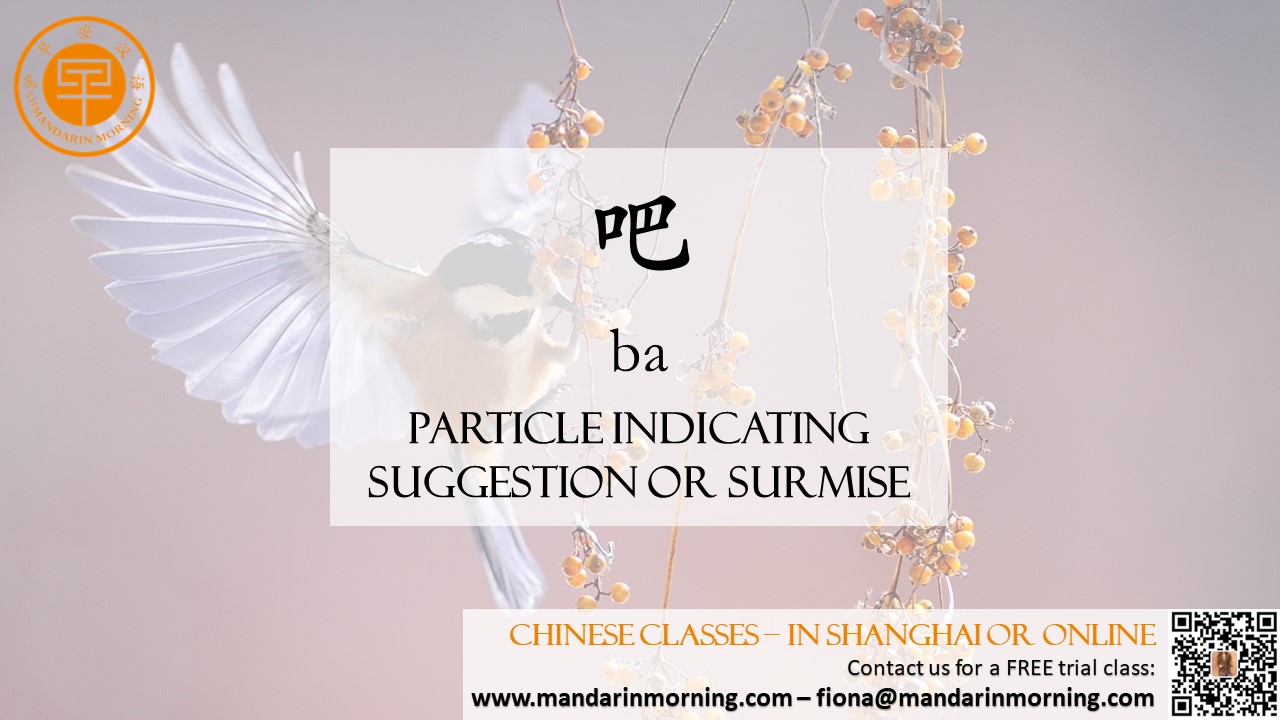| Sentence-final particles are small words or sounds that you add at the end of a sentence in Chinese. They can help convey a specific tone, emotion, or meaning. In this lesson we cover some of the most common particles and show you how to use them effectively.  1. 吧 (ba) The particle 吧 (ba) can be used to make suggestions, express assumptions, or soften the tone of a statement. (1): Using 吧 (ba) for Suggestions When you want to make a suggestion, you can add 吧 (ba) at the end of the sentence. This makes it sound more polite and friendly. Example: 我们去公园吧。 (wǒ men qù gōng yuán ba.) - Let's go to the park. (2): Using 吧 (ba) for Assumptions You can also use 吧 (ba) to express an assumption or a guess. Adding 吧 (ba) indicates that you're not entirely sure about the information, but you think it's likely to be true. Example: 他应该在家吧。 (tā yīng gāi zài jiā ba.) - He should be at home, I guess. (3): Softening Statements with 吧 (ba) Sometimes, you might want to soften the tone of a statement. In this case, you can add 吧 (ba) to make it sound more gentle and polite. Example: 你可以帮我一下吧。 (nǐ kě yǐ bāng wǒ yī xià ba.) - Can you help me, please? 2. 呢(ne) 呢 (ne) is often used to ask questions, indicate continuation and to add a “mood”. (1): Using 呢 (ne) for “Bounce Back” Questions If someone asks you a question, you can use 呢 (ne) to ask the same question back. For Example: 我是中国人,你呢? (wǒ shì zhōng guó rén,nǐ ne?)- I'm Chinese. What about you? (2): Using 呢 (ne) for “Where is…” Questions 呢 (ne) can also be used to ask where something or someone is. Example: 你的书呢? (nǐ de shū ne?) - Where is your book? (3): Using 呢 (ne) for Continuation The third function of 呢 (ne) is to emphasize that an action or situation is still ongoing. Example: 我还在学习呢。 (wǒ hái zài xué xí ne.) - I'm still studying. (4): Using 呢 (ne) to add a “mood” 呢 (ne) can add a certain "mood" or "attitude" to the sentence. For example, it can make you sound more confident and persuasive in a conversation. Examples: 我不要睡觉。还早呢!(wǒ bù yào shuì jiào. hái zǎo ne!) - I don't want to sleep. It's still early! |